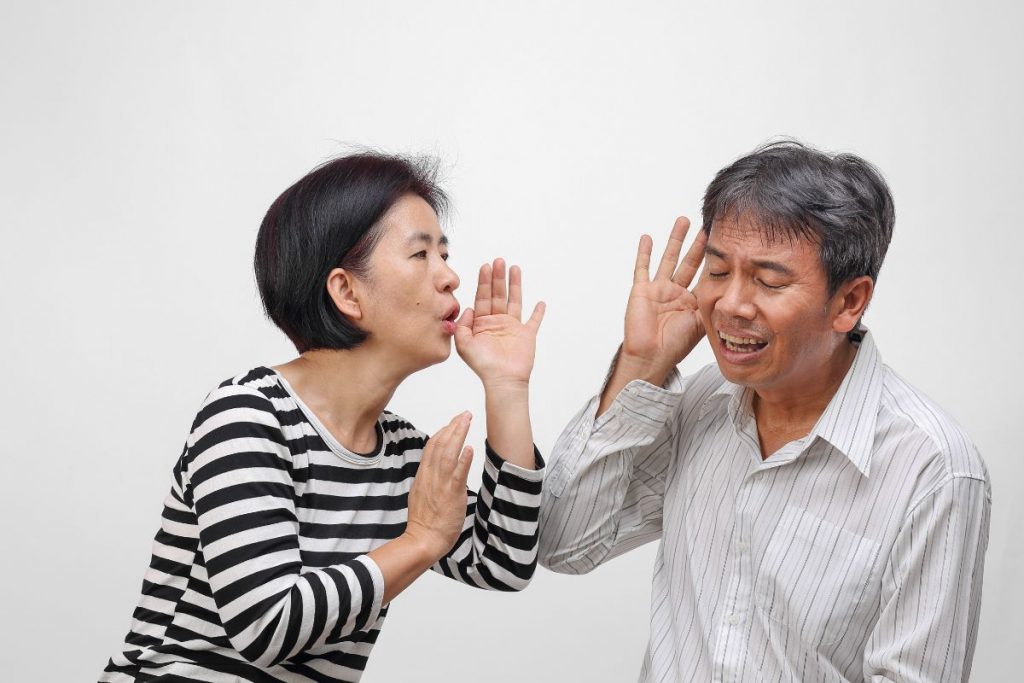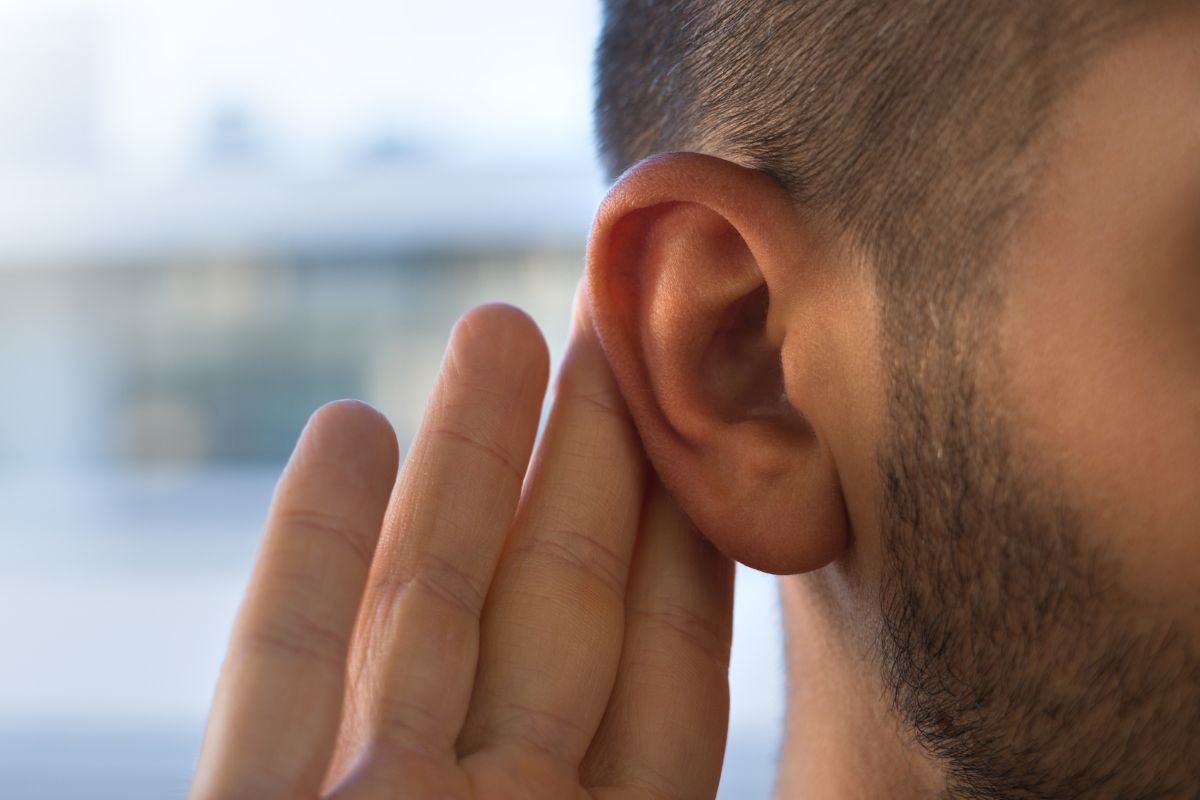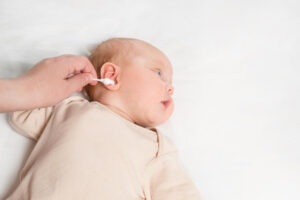Introduction to Sudden Sensorineural Hearing Loss (SSNHL)

In the discourse presented here, Dr. Shree Rao provides information about Dealing with Sudden Sensorineural Hearing Loss. She is the Best Doctor for Cochlear Implants.
Sudden Sensorineural Hearing Loss (SSNHL) is a condition characterized by a rapid loss of hearing, typically occurring in one ear over the course of a few hours to a few days. This sudden onset of hearing impairment can be distressing and alarming for individuals experiencing it. SSNHL is considered a medical emergency, requiring prompt evaluation and intervention to optimize outcomes.
The exact cause of SSNHL is often unclear, but it is believed to result from damage to the hair cells in the inner ear or disruptions in the transmission of sound signals to the brain. Various factors may contribute to SSNHL, including viral infections, vascular disorders, autoimmune diseases, trauma, and exposure to loud noise.
Dr. Shree Rao, an esteemed otolaryngologist, emphasizes the importance of seeking immediate medical attention if sudden hearing loss is suspected. Early intervention, typically involving a comprehensive hearing evaluation and diagnostic testing, can help determine the underlying cause of SSNHL and guide appropriate treatment strategies.
Causes and Risk Factors
Causes of Sudden Sensorineural Hearing Loss
Viral Infections: Viral infections, particularly those affecting the inner ear, such as viral labyrinthitis or vestibular neuritis, can lead to sudden sensorineural hearing loss. Viruses like herpes simplex virus (HSV), varicella-zoster virus (VZV), and cytomegalovirus (CMV) have been implicated in SSNHL cases.
Vascular Disorders: Conditions affecting blood flow to the inner ear, such as ischemic stroke, thrombosis, or vasospasm of the labyrinthine artery, can cause sudden sensorineural hearing loss. Reduced blood supply deprives the inner ear structures of oxygen and nutrients, leading to auditory dysfunction.
Autoimmune Diseases: Autoimmune disorders like autoimmune inner ear disease (AIED) can result in sudden sensorineural hearing loss. In AIED, the immune system mistakenly attacks the inner ear tissues, causing inflammation and damage to the cochlea and auditory nerve.
Ototoxic Medications: Certain medications with ototoxic properties, such as aminoglycoside antibiotics, nonsteroidal anti-inflammatory drugs (NSAIDs), and chemotherapeutic agents, can cause sudden sensorineural hearing loss as a side effect. These medications may damage the hair cells in the cochlea or affect inner ear blood flow.
Trauma and Physical Injury: Head trauma, skull fractures, or barotrauma from sudden changes in pressure (e.g., scuba diving accidents, explosions) can injure the inner ear structures and lead to sudden sensorineural hearing loss. Direct trauma to the cochlea or auditory nerve can disrupt auditory function.
Idiopathic Causes: In many cases, the exact cause of sudden sensorineural hearing loss remains unknown, leading to classification as idiopathic SSNHL. While the specific mechanisms underlying idiopathic cases are unclear, factors such as viral infections, vascular compromise, or autoimmune reactions may play a role.
Risk Factors Related to Sudden Sensorineural Hearing Loss
Age: Sudden sensorineural hearing loss can occur at any age but is more common in adults aged 50-60 years. Age-related changes in the inner ear blood supply and increased susceptibility to infections may contribute to this association.
Sex: Some studies suggest a higher prevalence of sudden sensorineural hearing loss in males compared to females, although the reasons for this gender difference are not fully understood.
Smoking: Tobacco smoking is considered a risk factor for sudden sensorineural hearing loss, as it can impair blood flow to the inner ear and increase susceptibility to infections and inflammation.
Underlying Health Conditions: Individuals with underlying health conditions such as diabetes, hypertension, cardiovascular disease, or autoimmune disorders may have an increased risk of developing sudden sensorineural hearing loss due to systemic effects on vascular health and immune function.
Symptoms and Clinical Presentation
Acute Hearing Loss: The hallmark symptom of SSNHL is a sudden, unexplained decrease in hearing ability, typically affecting one ear. Patients may notice a sudden onset of hearing loss upon waking up or during daily activities, with no preceding trauma or exposure to loud noise.
Reduced Hearing Sensitivity: Individuals with SSNHL often experience a significant reduction in hearing sensitivity across various frequencies. This hearing loss may range from mild to profound and can affect both high and low-pitched sounds. Patients may describe difficulty hearing conversations, phone calls, or environmental sounds.
Distorted or Muffled Sounds: Some patients with SSNHL report perceiving sounds as distorted, muffled, or unclear. Speech may sound garbled or indistinct, making it challenging to understand spoken words even at normal volume levels. This symptom can contribute to communication difficulties and social isolation.
Tinnitus: Tinnitus, or perception of ringing, buzzing, or other phantom sounds in the affected ear, is a common accompanying symptom of SSNHL. Tinnitus may vary in intensity and pitch, ranging from a mild annoyance to a distressing sensation that interferes with concentration and sleep.
Ear Fullness or Pressure: Some patients experience sensations of ear fullness, pressure, or discomfort in the affected ear, similar to the feeling of having a plugged or congested ear. This sensation may fluctuate in intensity and can be accompanied by episodes of dizziness or imbalance.
Speech Discrimination Difficulty: Patients with SSNHL may have difficulty understanding speech, particularly in noisy environments or when multiple speakers are present. This speech discrimination difficulty is often disproportionate to the degree of hearing loss, indicating a cochlear rather than a conductive hearing impairment.
Vertigo or Imbalance: In some cases, SSNHL may be associated with vestibular symptoms such as vertigo (spinning sensation), dizziness, or imbalance. These symptoms may suggest involvement of the vestibular system, which can occur concurrently with inner ear hearing loss.
Diagnostic Evaluation
Healthcare providers begin by conducting a thorough medical history interview to gather information about the onset, duration, and progression of hearing loss, as well as any associated symptoms such as tinnitus, vertigo, or ear fullness. Patients are asked about recent illnesses, medication use, exposure to loud noise, head trauma, or other relevant factors that may contribute to SSNHL.
A detailed physical examination of the ears, nose, and throat is performed to assess for any abnormalities or signs of infection, inflammation, or structural issues that may affect hearing. Special attention is given to the tympanic membrane (eardrum), which may show signs of perforation, fluid accumulation, or other pathology.
Audiological testing is essential for evaluating the extent and nature of hearing loss in patients with SSNHL. Pure-tone audiometry measures hearing sensitivity across different frequencies, helping determine the degree and configuration of hearing loss. Speech audiometry assesses speech recognition and discrimination abilities, providing valuable insights into cochlear function and
auditory processing.
Tympanometry evaluates middle ear function by measuring the compliance of the tympanic membrane and assessing the presence of middle ear fluid or pressure abnormalities. Acoustic reflex testing measures the reflexive contraction of the middle ear muscles in response to loud sounds, aiding in the diagnosis of conductive versus sensorineural hearing loss.
In some cases, imaging studies such as magnetic resonance imaging (MRI) or computed tomography (CT) scans may be recommended to evaluate the inner ear structures, temporal bones, and adjacent anatomical structures. Imaging helps rule out structural abnormalities, tumors, or other conditions that may mimic SSNHL or require specific treatment approaches.
Laboratory investigations such as blood tests may be conducted to assess for underlying systemic conditions associated with hearing loss, such as autoimmune disorders, infectious diseases, metabolic abnormalities, or blood dyscrasias. These tests help identify potential causes of SSNHL and guide further management.
Additional specialized tests may be indicated based on clinical presentation and suspected etiology of SSNHL. These may include auditory brainstem response (ABR) testing, vestibular function tests, electrocochleography (ECoG), or genetic testing for hereditary hearing disorders. These tests provide valuable diagnostic information and help tailor treatment strategies to individual patient needs.
Emergency Management and Initial Treatment
Immediate treatment initiatives typically involve the initiation of empiric treatment with oral corticosteroids to reduce inflammation and mitigate potential cochlear damage. High-dose oral prednisone is commonly prescribed for a short duration, with the dosage and duration tailored to the individual patient’s circumstances. In some cases, intratympanic steroid injections may be considered as an adjunctive treatment for severe or refractory SSNHL.
Further diagnostic evaluations, such as imaging studies (MRI or CT scans) and laboratory tests, may be conducted to identify potential underlying causes of SSNHL, including viral infections, autoimmune disorders, or vascular abnormalities. Addressing identified etiologies with targeted interventions, such as antiviral therapy or immunosuppressive agents, is essential for optimizing treatment outcomes.
Follow-up care includes scheduling regular audiologic evaluations to monitor hearing thresholds and assess treatment response over time. Collaboration with audiologists and otolaryngologists is crucial for optimizing rehabilitation strategies, such as hearing aids or assistive listening devices, as needed. Patients should be educated about the importance of ongoing monitoring and compliance with treatment recommendations to maximize long-term outcomes and facilitate recovery from sudden sensorineural hearing loss.
Conclusion
In conclusion, dealing with Sudden Sensorineural Hearing Loss (SSNHL) requires immediate medical attention and a thorough evaluation to identify the underlying cause and determine the appropriate treatment. With the expertise of professionals like Dr. Shree Rao, individuals can navigate this challenging condition with informed guidance and support, optimizing their chances for recovery and preserving their auditory health. Prompt intervention and tailored treatment strategies are essential in mitigating the impact of SSNHL and enhancing the overall quality of life for those affected.

Why consult EarSurgeon, Dr. Shree Rao?
Dr. Shree Cuddapah Rao is acclaimed as one of the best pediatric ENT specialists in Hyderabad. With 10+ years of deep domain experience in the field of ENT, she is the director at Dr. Rao’s ENT Super Specialty Hospital. She underwent specialized training in Rhinoplasty / Facial Plastic surgery at Singapore General Hospital, Singapore. She also underwent advanced training in cochlear implant surgery under Padmashri Dr. Milind V Kirtane and had a Fellowship in a cochlear implant. Having performed over 200 successful cochlear implants for patients worldwide, Dr. Shree Cuddapah Rao is also the recipient of several prestigious accolades in the domain of ENT. Dr. Shree Rao is one of the best ent doctor in hyderabad, to book an appointment click here.
Are you looking for
then you have landed at right place!







